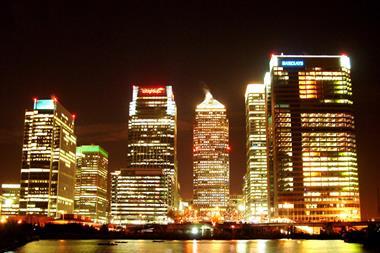If, like me, you’ve got the odd grey hair, you will be able to cast your mind back 26 years to a time when life seemed, well, pretty much the same.

Bar the technology, and Big Brother being a reference to a George Orwell novel set four years earlier, the way of things was not all that different at all. Especially when it comes to bid battles in the property industry.
It was 24 November 1988, the day Dutch property fund Rodamco made an audacious £1.3bn bid for Hammerson, then the UK’s third largest property company. With the backing of Standard Life, its largest shareholder, it fought the bid off after then-chairman Sydney Mason described it as “laughable” and “derisory”, adding the record of the Dutch company was “dismal”.
Ever since its bitter battle with the Dutch, Hammerson has worn the property industry’s perennial takeover target crown. There were rumours through the nineties and the noughties. In May 2007, its then-chairman John Nelson even caused another flurry of speculation when he hinted another bid was on its way. Shares skyrocketed to 1,745p, but plummeted soon after the bid talk fell away.
Well, more than two and a half decades on since Hammerson repelled the first major threat to its independence, the rumours are gathering pace again. But bid rumours come and go. Only one thing is certain. If you’re a shareholder in Hammerson and could turn back time to November 1988, you would bite Rodamco’s hand off following its 818p bid, especially as the shares are currently bouncing around 600p .
So, after wallowing in some 1980s property nostalgia, rejoin me in 2014, and put yourself in the shoes of David Pritchard, the chairman of Songbird. He’s in the middle of his own hostile takeover battle for control of Canary Wharf, facing a joint bid from the Qatari Investment Authority (QIA) and Canadian group Brookfield Partners.
Biggest shareholders
As the bidders attempt to rally support from wherever they can get it, Pritchard is banking on the loyalty of his two biggest shareholders after the Qataris, in similar fashion to the way Hammerson’s relied on Standard Life back in 1988.
While Songbird has always been confident of backing from Simon Glick, who holds a whopping 25.9% of the group, there have been rumours the Chinese Investment Corporation may be swaying. However, our highly placed sources in the Songbird camp claim the Chinese have assured them there is zero chance of them backing the bid. What’s more, Songbird has also been promised Morgan Stanley has no intention of selling its 8.5% to the bidders.
If this is the case, the QIA/Brookfield bid would indeed be dead. Even if they managed to gain the support of every shareholder in the free float, they would control only 49.7% of the company. It’s close to breaking the 50% barrier to wrest control, but it’s not close enough.
The bid may be what US political commentators would say was “too close to call”, but without the support of Glick, the Chinese or Morgan Stanley, it’s over.
So what happens now, assuming Songbird’s confidence in its shareholders’ backing is borne out? Pritchard will have to prove the numbers he’s used to back his rebuttal.
If the share price does not go significantly north of 350p then, I suspect, we will have a new perennial takeover target in the property industry to take Hammerson’s uncomfortable crown.
David Parsley is contributing editor, news, for Property Week






























No comments yet